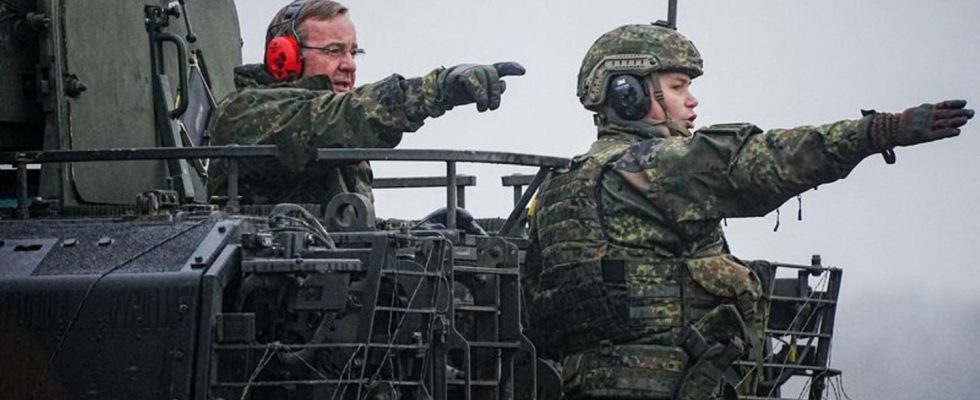Military
NATO sees unprecedented increase in defense spending
In the past, according to documents from the NATO archives, Germany last spent two percent of its gross domestic product (GDP) in 1992. photo
© Kay Nietfeld/dpa
Germany is not the only NATO state in Europe that is currently massively increasing its defense spending. Before a meeting in Brussels, Secretary General Jens Stoltenberg is now giving new figures.
NATO has seen a massive increase in the past year Defense expenditure registered by Member States. The spending of the European allies and Canada will have been increased by eleven percent in 2023, said Secretary General Jens Stoltenberg on Wednesday in Brussels. This is unprecedented.
Stoltenberg added that he assumes that a total of 18 of the 31 allies will achieve NATO’s goal of spending two percent of their gross domestic product on defense this year. That is six times as many as in 2014. At that time, only three alliance partners achieved the two percent target.
“In 2024, allies in Europe will invest a combined $380 billion in defense,” said the Norwegian. This corresponds to two percent of the projected collective gross domestic product of the countries.
Record also in Germany
According to information from the German Press Agency, Germany has reported to NATO planned defense spending amounting to two percent of gross domestic product for the first time in three decades. Accordingly, the federal government submitted an amount for the current year that, when converted into comparative figures from the defense alliance, corresponds to a sum of 73.41 billion dollars. In absolute terms, this is a record for Germany and, according to the current NATO forecast, would mean a GDP ratio of 2.01 percent.
In the past, according to documents from the NATO archives, Germany last spent two percent of its gross domestic product (GDP) in 1992. During the Cold War years the rate was usually over three percent.
The development of defense spending by the NATO states will be discussed this Thursday at a meeting of defense ministers at the alliance headquarters in Brussels.
With the drastic increase in defense spending, the federal government is reacting in particular to Russia’s invasion of Ukraine. By significantly strengthening deterrence and defense, the aim is to make it clear to Kremlin chief Vladimir Putin that an attack on a European NATO country would have no chance of success.
The numbers could also be helpful with a view to a possible re-election of Donald Trump in the US presidential election in November. The Republican made it clear during a campaign appearance at the weekend that he would not provide American support to allies with low defense spending in the event of a Russian attack.

